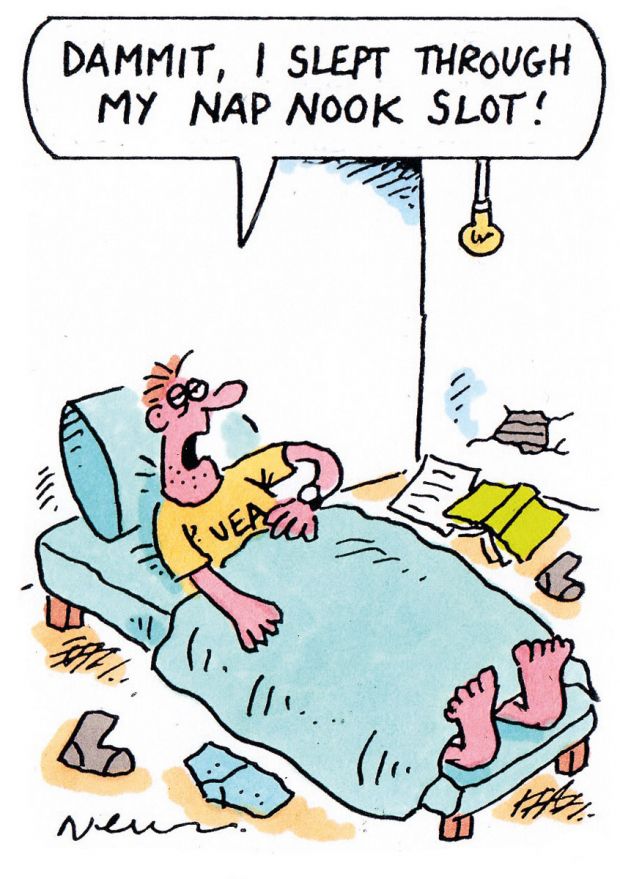
- The battle to protect academic freedom in the counter-terrorism and security bill seemed to be nearing a conclusion this week after final amendments were agreed by peers. Having previously inserted references to higher education institutions’ obligations around freedom of speech, the government went on to mention duties regarding “academic freedom” when the legislation passed its third reading in the House of Lords on 9 February. Both must be considered by universities when carrying out the planned duty to prevent people from being drawn into terrorism, and also by the home secretary when deciding whether to issue guidance or to make a direction to an institution that is felt to be failing in this duty. Amendments passed by the House of Lords were due to be considered in the House of Commons on 10 February in the final legislative hurdle before the bill can receive Royal Assent.
- Universities minister, MP, writer and now university professor, David Willetts has excelled in a variety of roles over the past five years. Property developer is, however, perhaps his least successful incarnation, with the five-year saga of his dilapidated second home in his Havant constituency once again in the headlines. Lorraine Galliers was hit on the head by a fragment of what appeared to be mortar that fell in high winds from scaffolding surrounding Mr Willetts’ property, narrowly missing her five-month-old baby, the Portsmouth News reported on 6 February. Two and a half years ago, the 17th-century building was labelled an “eyesore” by the local civic society because of the scaffolding that has encased it since about 2010. Despite having presided over unprecedented levels of campus construction, it seems that Mr Willetts’ personal foray into the building trade is rather less assured.
- A Canadian university is offering a degree course on Cristiano Ronaldo, the Daily Mirror reported on 6 February. Students taking the sociology course at the University of British Columbia Okanagan will explore the cult of celebrity around the Real Madrid star and his “visibility beyond the football world”. “He has cultural appeal, he has sex appeal, he has influence in cultural looks and he takes very good care of himself,” said Luis Aguiar, an associate professor, who had the idea for the course after seeing Ronaldo almost single-handedly take Portugal to the 2014 World Cup finals. “I don’t know if Ronaldo has heard about the course – I can’t imagine he hasn’t,” said Aguiar, who optimistically wondered if the footballer might offer lectures to his class by Skype.
- Dozy students at the University of East Anglia can now grab forty winks between lectures in a dedicated sleeping area, the Eastern Daily Press reported on 4 February. Equipped with comfy beanbags and chairs, pillows and blackout curtains, the “Nap Nook” will allow students to take a 40-minute siesta between midday and 6am, the paper said. The room will be monitored by CCTV to ensure that “it’s only strictly sleeping” and that students are safe, it adds. With many students living in noisy shared houses or close to busy roads, helping them get a decent rest could boost their alertness and, potentially, their grades, says the UEA’s students’ union. Having a kip on campus is nothing new, but the Nap Nook may prove rather more comfortable than the quiet corner of the library most favoured by hard-living students.
- A number of universities have been named and shamed by consumer watchdog Which? for using “unlawful” terms allowing them to make changes to courses midway through a degree. About half of universities use terms that free them to revise programmes after students have enrolled, says a report from the organisation on 5 February. Of these institutions, one in five uses terms that Which? deems to be unlawful and a third (31 per cent) use terms considered to be bad practice and likely to break the law. Examples of potentially unlawful practice include one university’s statement that “students accept fees in the second year and subsequent years of study will increase”. Which? executive director Richard Lloyd called the widespread use of unfair terms “worrying”. But Which? itself faced criticism for publicly naming universities it had identified in its investigation rather than working with them to improve terms.
Register to continue
Why register?
- Registration is free and only takes a moment
- Once registered, you can read 3 articles a month
- Sign up for our newsletter
Subscribe
Or subscribe for unlimited access to:
- Unlimited access to news, views, insights & reviews
- Digital editions
- Digital access to THE’s university and college rankings analysis
Already registered or a current subscriber?
Please or to read this article.
